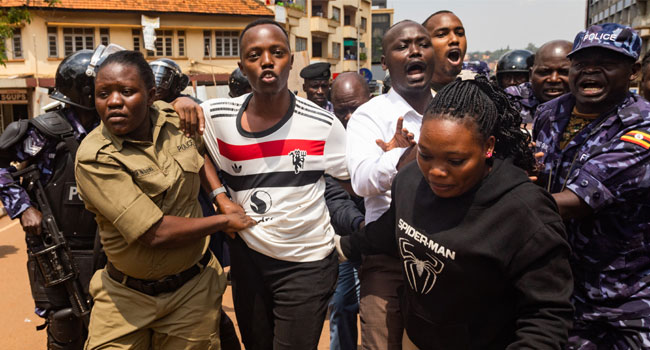INTERNATIONAL rights campaigners called Thursday for the Ugandan government to free dozens of protesters who have been arrested and charged for taking part in anti-corruption rallies this week.
Inspired by widespread protests against the government in neighbouring Kenya led largely by Gen-Z activists, Ugandans took to the streets of the capital Kampala on Tuesday to demand action in the wake of several high-profile graft scandals.
About 60 people, including a prominent TV and radio presenter and three young protest leaders, have been remanded in custody on charges including being a “common nuisance”, according to their lawyers.
President Yoweri Museveni, who has ruled with an iron fist for almost four decades, had warned the demonstrators they were “playing with fire” if they went ahead despite a police ban.
And on Thursday, he praised the actions of the security forces during the rallies, saying in a statement on X that “bad” elements were at work, including “funding from foreign sources that are always meddling in the internal affairs of Africa”.
Riot police had been out in force on Tuesday as scattered groups of people demonstrated, some calling for the resignation of parliament speaker Anita Among, who has been accused of involvement in a graft scandal.
“The heavy-handed tactics used by the Ugandan government to stifle and silence peaceful protestors show a manifest clampdown on dissent,” said Tigere Chagutah, Amnesty International’s regional director for East and Southern Africa.
“Ugandan authorities must immediately and unconditionally release all those who were arrested solely for exercising their right to peaceful assembly and remain unlawfully detained,” Chagutah said in a statement.
Human Rights Watch said in a statement on Wednesday that the colonial-era “common nuisance” offence was “long-misused” by the government to suppress legitimate demonstrations.
“This latest crackdown on protesters is a blatant violation of the rights to peaceful assembly and free speech, guaranteed in Uganda’s constitution and international law, and is indicative of the authorities’ intolerance toward dissent.”






